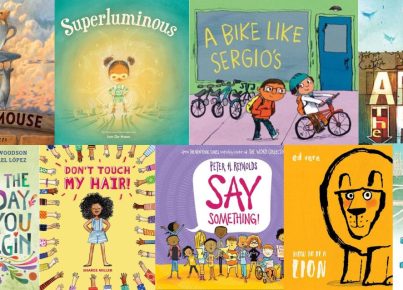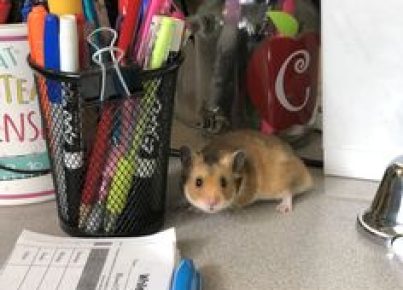Are you looking for school counseling apps, tools, and resources that you can use with your students? If so, we have you covered. Check out our list below. Let us know if there are any that we missed.
Cialfo – This is a guidance platform that counselors and independent education consultants can use to manage and collaborate with their students to better equip these children for college. It has an extensive database of schools from around the world, which teachers can access and recommendation letters on behalf of their students during application season. Cialfo is accessible on the web, Android, iOS, and the WeChat App.
Emotional ABCs – Is an app that teaches socio-emotional skills to young children. Currently being used by more than 20,000 teachers and school counselors nationwide. The curriculum of video clips, group, and independent games and activities makes learning social-emotional skills fun while helping model positive behaviors, which can aid with obstacles ranging from anxiety or frustration to acting out and impulse control.
My School Therapy – This platform offers electronic documentation services for school therapists. My School Therapy integrates into the workflow and eliminates redundancies. It also helps to simplify scheduling and reduce paperwork.
Smiling Mind – Developed by educators and psychologists, Smiling Mind is a mindfulness meditation program. It has both a web and app-based interface dedicated to helping people deal with the pressure and stress of everyday life. There are a variety of tailored programs for different age groups and challenges, including sports, mindfulness in the classroom, 7-9-year-olds, 10-12 year olds, 13-15 year olds, and 16-18 year olds. Smiling Mind’s app allows you to track progress and offers a variety of different meditation lengths to meet your students’ individual needs.
Social Adventures – Social Adventures is a self-contained resource to teach social skills and friendship. Developed for children between the ages of 3 and 13 years old, it can be used to teach students how to initiate interactions, maintain interactions, negotiate, advocate, interpret non-verbal communication, negotiate personal space, and experience humor. The app includes over 80 activities that can be used in the classroom, on playdates, or at home. Each section has detailed parent tips to assist with understanding how to help children apply the skills they are learning. And if you’re not sure where to start, Social Adventures has a sample eight-week beginner program to get you off on the right foot.
Quandary– Welcome to the world of Planet Braxos, a science fiction, narrative-driven game for mobile devices. Users play as the captain of the new human settlement on planet Braxos, shaping the direction of modern civilization and developing ethical reasoning skills. This educational game involves many diverse characters with differing perspectives designed to make the game challenging and enlightening. Users learn to solve conflicts by exploring different facts, options, and opinions as a means of solving the colony’s problems. Quantary is designed for kids age 8 to 16 years old; however, it is a game that can be played by anyone.
Student Tracking System – This software program tracks bullying, bad behavior, good character, and sends alerts directly to educators and school administrators. This software was integrated with character education exercises that promote kindness, communication, cooperation, and friendship and include lessons and activities stressing empathy and conflict resolution skills for all students.
Impero Education Pro V7– Impero Education Pro has online safety features and software that detect the kinds of words students are typing or searching. Impero Software has a partnership with advocacy organizations to come up with a list of keywords associated with issues such as self-harm, cyberbullying, sexting, radicalization, mental problems, and more to alert instructors and administrators when these keywords are detected.
CatapultEMS – Develop an emergency response plan that is clear, centralized, and always informed with real-time student accounting. It offers essential features such as instant emergency alerts and communication, open communication channels between teachers and administrators, anonymous threat and bully reporting, and much more.
Calm Myself Down– This is an iOS app that trains autistic children to control their emotional responses to challenges and situations. Developed by an ABA consultant, it uses Applied Behavior Analysis techniques to help children manage tasks in smaller parts with rewards for a proper response. Children choose activities that help them relax; making these choices helps them to maintain control when the situation arises.
Classroom Traffic Lights– Classroom Traffic Lights lets teachers assess students’ emotional responses to new development without face-to-face confrontation. You simply ask the class to choose an appropriate response and show their screen. The teacher can immediately grade emotional responses and make changes where appropriate. This app can be used in a variety of classroom situations; it all comes down to your creativity.
Emotional ABCs -Is an app that teaches socio-emotional skills to young children. Currently being used by more than 20,000 teachers and school counselors nationwide. The curriculum of video clips, group, and independent games and activities makes learning social-emotional skills fun while helping model positive behaviors, which can aid with obstacles ranging from anxiety or frustration to acting out and impulse control.
Peppy Pals – Follow the adventures of four brave animal buddies and learn about emotions and friendship. This app helps children improve their emotional intelligence abilities. Download the app and join Sammy the horse, Eggy the dog, Izzy the owl, and Gabby the rabbit on an emotional rollercoaster ride in a colorful, exciting universe. Help them navigate through familiar experiences, play with them, or enjoy other mini games.
Playful Learning– Playful Learning uses unforgettable lessons to help parents and teachers form habits of heart and mind. The lessons are specially designed by educational experts to meet children’s academic, social, and emotional needs. It based on the fact that children have an innate desire to ask questions and impact the world around them positively. Children are blank pages, defined by their experiences, and under the right circumstances, they take full advantage of the learning opportunities they encounter. Playful Learning provides the right circumstances and learning opportunities.
The Emotion Diary – Based on the principles of positive psychology, this app helps students record and track their emotions over time. It can also be useful for managing conditions or disorders for parents and teachers as a tool to begin discussions with students who need support or are going through a difficult time or for self-analysis. There are four add-on features to enhance The Emotion Diary: Therapist Feature, Emotional Dimensions Feature, Positives Feature, and Group Feature. Therapist Feature will assist students working with a therapist to email their diary entries, filter and sort their diary, and add additional notes. Emotional Dimensions Feature will allow students to add and remove emotional dimensions and switch on dimension labels and information. The Positives Feature lets students record acts of kindness, things they are grateful for, and signature strengths. The Group Feature allows therapists or teachers to track emotions by student or client, load clients’ emotional diaries, and sort by client or category.
The Great Behavior Game – A website-based classroom management game, The Great Behavior Game allows teachers to monitor student behavior during lessons by awarding points or placing students into timeout status with a single click. Designed for students in Kindergarten through 5th grade, teachers start the game each morning, and it runs throughout the school day with students earning points and stars for positive behavior and being put in time out or a freeze when their behavior requires a consequence. While in time out or a freeze, students cannot earn points or stars. When removed from time out or freeze status, their points are reset at zero. The Behavior Game keeps track of student scores and provides reports to help teachers troubleshoot student behavior and communicate more effectively with parents and other teachers about both positive and negative student behavior.
Sesame Street– Sesame Street is developed to assist children in growing smarter, stronger, and kinder. It achieves this by pooling together a curriculum that addresses kids’ critical developmental needs with the elaborate use of media and fun. Sesame Street facilitates learning with real, measurable results, a fact borne out by numerous studies and nurtured through our research-intensive process. Far beyond ABCs and 123s, programs provide valuable lessons about health, emotional well-being, respect, and understanding to assist children in growing up healthy, happy, and at home in their world.



